Coronavirus: Brazil's domestic workers cut adrift in pandemic
- Published
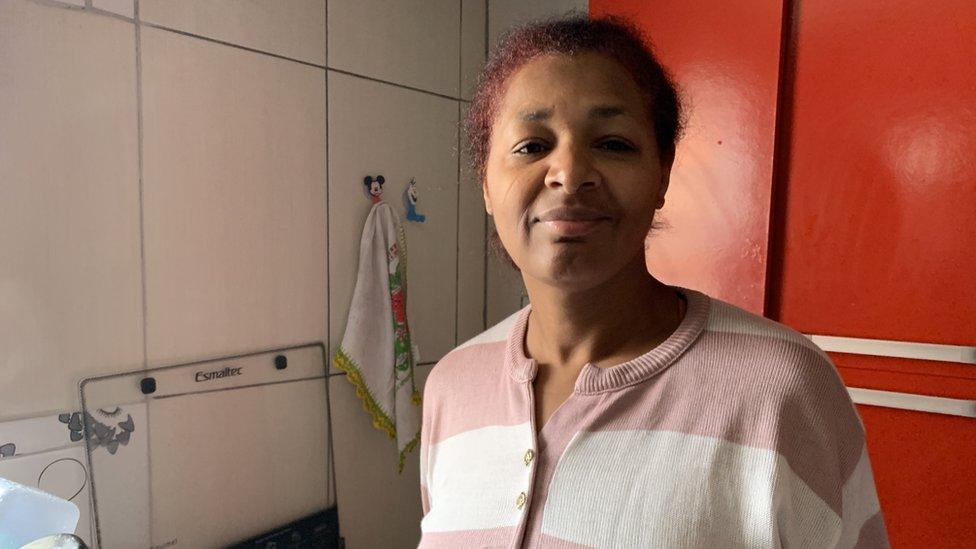
Rosangela (pictured) is one of millions of workers suffering across Brazil
Days after Brazil registered its first coronavirus death in March, the country began to close down. Businesses and restaurants were shuttered and people were told to stay home.
That's when Rosangela Jesus dos Santos's life changed unimaginably. The 47-year-old diarista, or daily housekeeper, was fired by most of her employers.
"They said it was because of the virus," she says. "I went to a different house every day of the week and some clients are elderly, I understand."
Rosangela is scared. She hopes she can return when the outbreak is over but for now, she's been left working just one day a week. Her remaining employer gives her a mask but at no point have they told her to stay home for her safety. She's wary of the virus but she knows if she doesn't work, she won't get paid.
"I need to work - my family is big, that's the truth," says Rosangela. "I would like to be working and I'm used to it, going out early and coming home late."
Little option
Home for Rosangela is Paraisopolis, Sao Paulo's second-largest favela. Her small house is tucked away, a few hundred metres down a narrow and winding alley - so common in Brazil's poor neighbourhoods.
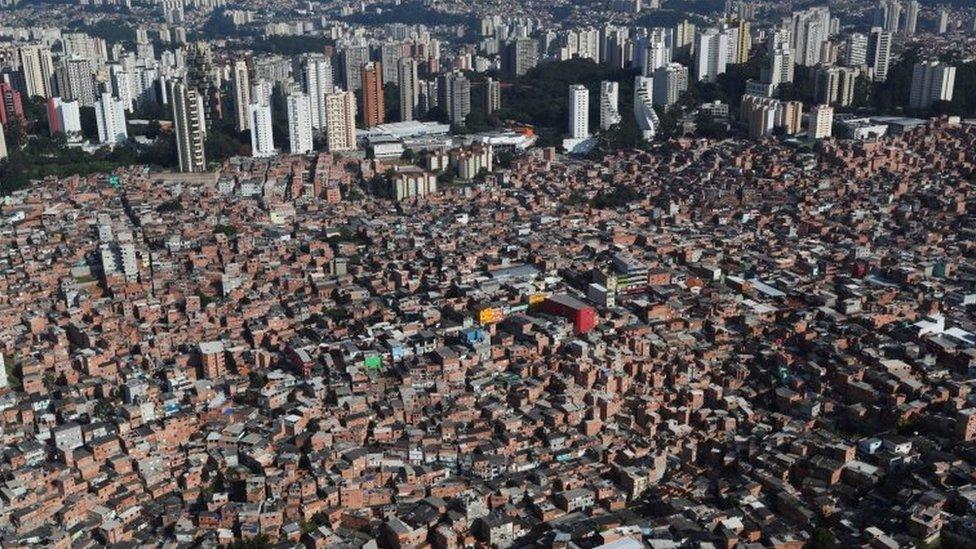
The density of the population of her local area makes it difficult to socially distance
On the way, you pass dozens of similar buildings, windows wide open on to the alleyway, families inside yet living very publicly. There is little option in these crowded neighbourhoods.
Rosangela lives with her daughter Carolina, her two-year-old grandson Erick and their little dog Samira in a two-roomed house.
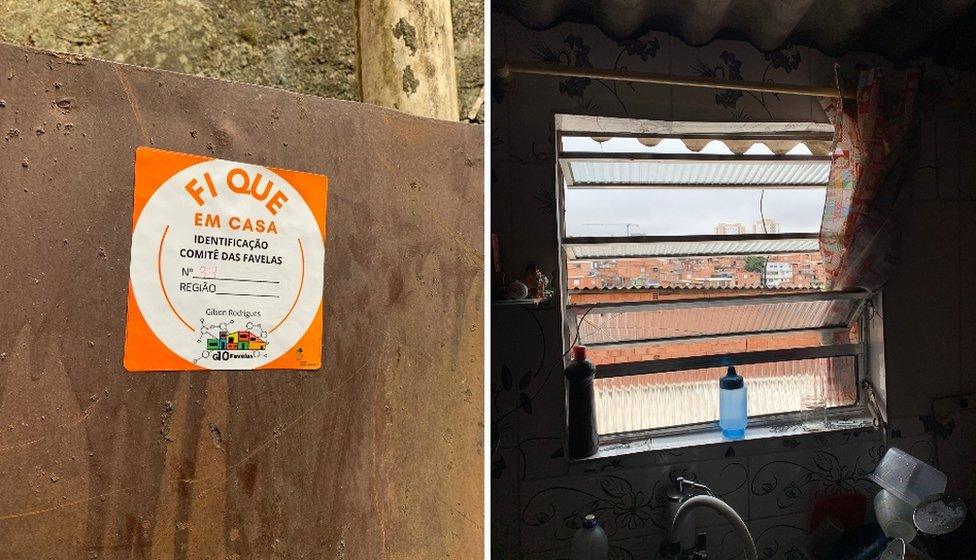
Stickers inside the neighbourhood (left) urge residents to stay at home
The main room serves as a kitchen, a living space and a bedroom. And from the kitchen window, you can see down across the favela - a sea of small houses built one on top of the other.
Rosangela has seven children, six of whom are unemployed. She also helps support her nine grandchildren but these days it's almost impossible.
An unequal response?
The International Labour Organization says Brazil has nearly seven million domestic workers, external: more than anywhere else in the world. Most of them are women - and the majority are black.
"The virus has been democratic in the fact that that it's affecting rich and poor but the actions, the attitudes and the lack of public policy have not been democratic," says community organiser Rejane Santos who lives in Paraisopolis.

You may also be interested in:

"People were let go and told by their employers to come back after the crisis. But the majority of the women are the main breadwinners, they are single mothers, they pay rent. They don't have savings."
'Adopt a Housekeeper'
Such is the problem with housekeepers who have been let go - and unpaid - that Rejane set up a crowdfunding campaign called Adopt a Housekeeper. More than a thousand women have come to her for help.
The campaign is raising money to provide domestic workers with a personal care kit, a food basket and 300 reais ($58; £46) each month to keep them going through the crisis.

Meal donation programmes are also running in other poor neighbourhoods (file photo)
Under Brazilian law, if a domestic worker spends more than two days a week with the same family, they must be registered. But many are not and those who work for several families, diaristas, remain unregistered legally. They are the most vulnerable in these times of crisis.
'Power struggle'
Queues outside banks have become a common sight - unregistered workers trying to take advantage of government handouts worth $115 a month - but millions are yet to receive the money.
For those lucky enough to have a contract, most have had theirs suspended.
"When this pandemic passes, what will happen?" asks Janaina Mariano de Sousa, the president of the Domestic Workers' Union of Sao Paulo.
She is concerned that with the country in recession, businesses that laid off workers temporarily will permanently shut their doors. Employees will get fired and it's the domestic workers who will suffer the most.

You may want to watch:
'Why we underestimated impact of coronavirus'

She thinks the government could do more but insists that her members need to carry on working.
"It's become a power struggle," she says, referring to the stay-at-home measures implemented by governors and the view of President Jair Bolsonaro that Brazil should return to work.
"Everyone is talking about Bolsonaro but I wonder sometimes, is he really crazy?" she says. "It's become such a political fight - he wants to get the economy going again so it can flourish."
'A really surreal agreement'
While undoubtedly there are people who have had to let their domestic workers go for financial reasons - almost five million people lost their jobs between February and April - the crisis has brought into sharp focus cultural challenges too.
Middle and upper-class Brazilians rely heavily on their domestic staff - but coronavirus has shown not everyone values them.
Camila Rocha, an actress, is part of a movement called For The Lives of Our Mothers. It was created by the sons, daughters and grandchildren of domestic workers to ensure they could get paid throughout - and stay at home.
"There are lots of situations where employers refuse to pay," she says, "or they insist on a really surreal agreement, such as not working now but getting a salary but then having to work to make up for that time - so effectively working for free after."
- Published31 May 2020
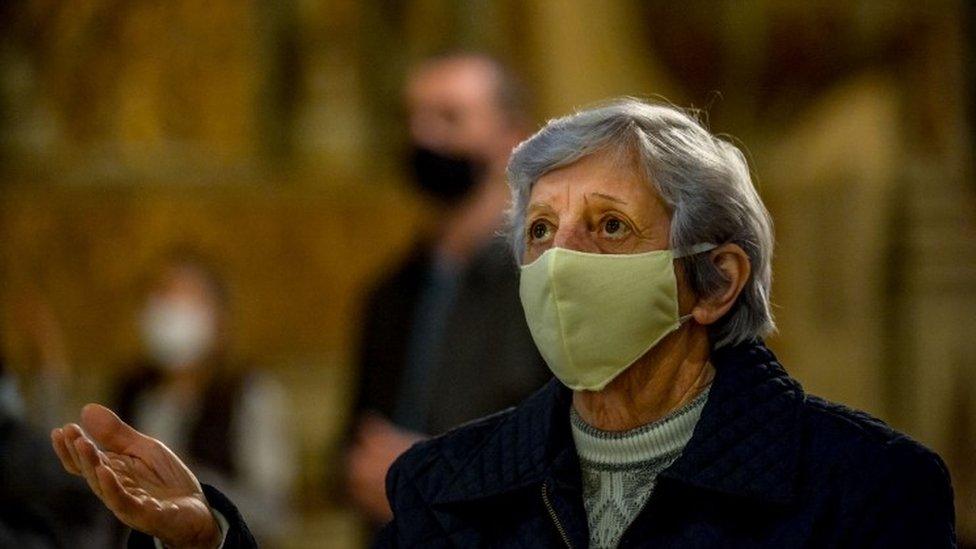
- Published25 May 2020
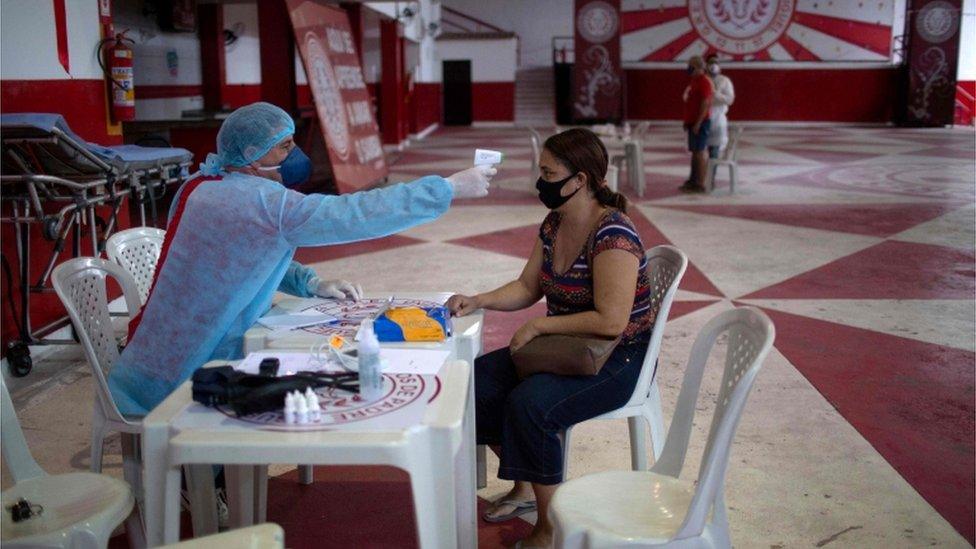
- Published22 May 2020
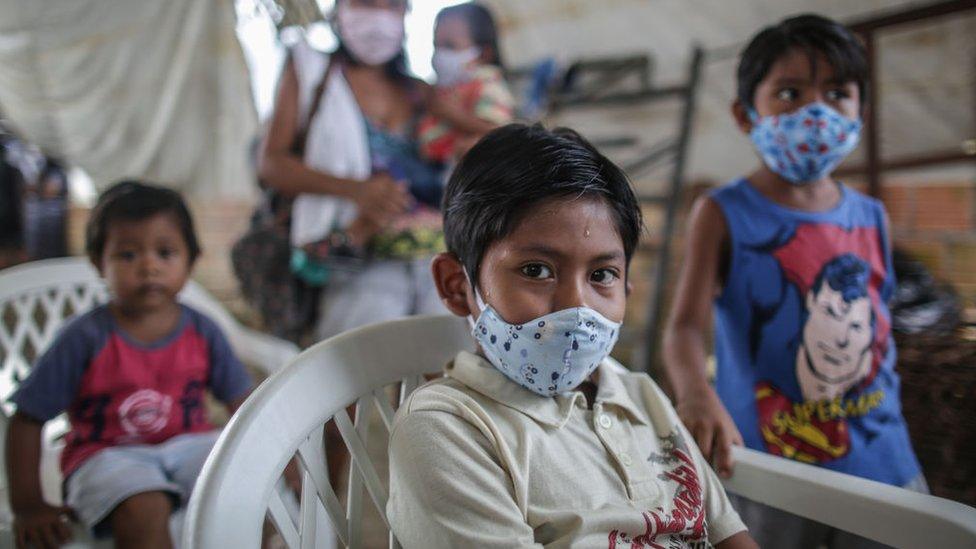
- Published20 May 2020

- Published20 May 2020

- Published18 May 2020

- Published17 May 2020
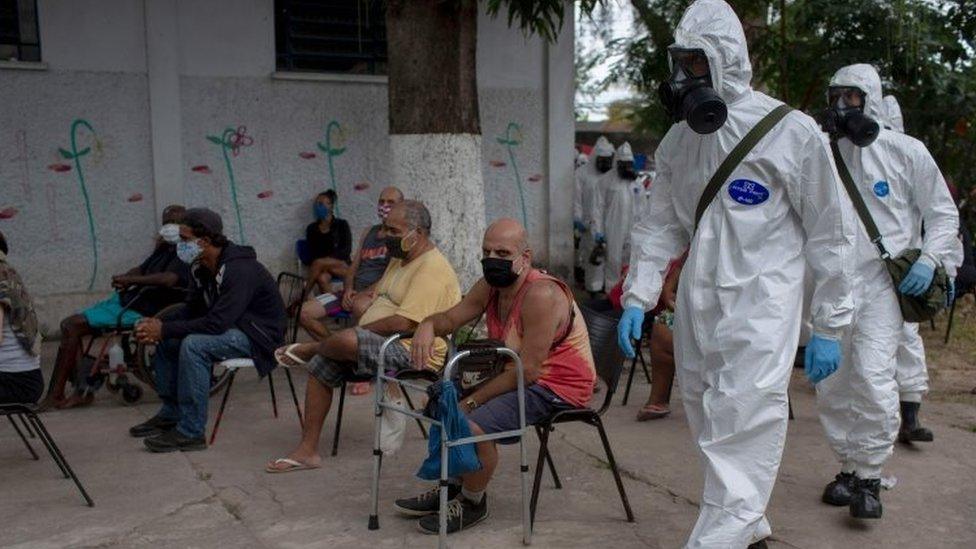
- Published12 May 2020
